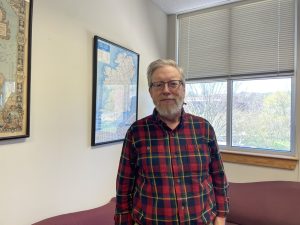Own up to your privilege
September 26, 2019
On Sept. 13, 2019, Chelsea Handler released her new Netflix documentary, “Hello, Privilege. It’s Me, Chelsea” in which she explores her white privilege.
At the beginning of the documentary Handler addresses on how her ability to make a film like this proves her white privilege. She is seen talking with college students about her actions and what she has said in the past.
Chelsea responds with respect, agreeing to the points being made and decided to do a lot more listening. She explains, “I want to know how to be a better white person for people of color, without making it a thing.”
The tone of the documentary quickly changed from making things a “black problem” to realizing racism and white privilege is in fact a white problem.
“We need to stop asking black people to solve white people’s problems because they’re tired of being asked about white people problems,” Handler said.
The documentary is filled with Chelsea interviewing a wide variety of people including black activists and sadly unaware conservatives. Chelsea even goes to Oktoberfest for some interviews with white people who pretended as if white privilege did not exist.
The documentary shows all sides of white privilege. Whether those who were presenting their sides believed in it or not, the film was able to document the lack of knowledge our society has towards the topic.
As an entertainer, Chelsea Handler has been said to be one of the loudest people in a room. But throughout the entirety of this film, Handler takes her comedic edge off and is able to shut up and listen and truly connect with what the black community was trying to get across to her and then be able to recognize when a white person was acting oblivious to the situation.
The takeaway from this film is something different than most activism films. The truth is, this film can only bring the topic of conversation to the surface, but it is up to people like Chelsea Handler who have the voice and can use their privilege to continue using their voice for good. We must continue fighting for the rights for black and brown lives and not just end the conversation after the documentary airs.
This documentary was just the start of a topic that needs to be pushed.
White people need to start acknowledging their white privilege and fight for those whose voices are not heard. It should no longer be a black problem to not get a call back to a job, a loan or a rental because of being a black person in society.
This documentary shines light on a topic far too many white people are too scared to talk about.

















Kearstin Calhoun • Sep 30, 2019 at 1:25 PM
Hey guys,
Is there any way you can change my name to the correct spelling on the site? I like to keep track of my submissions by looking my name up and this one doesnt pop up because of the mis spell.